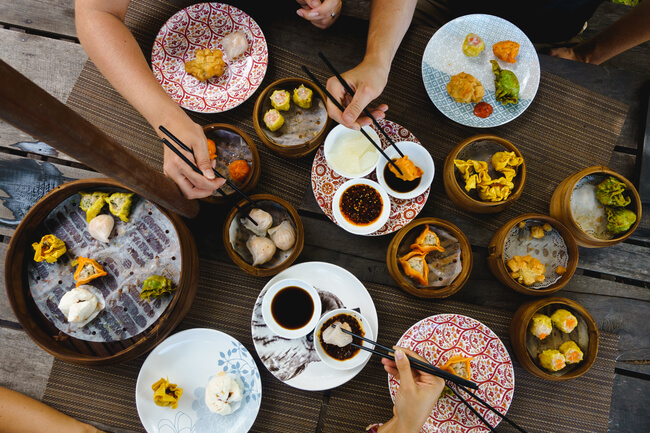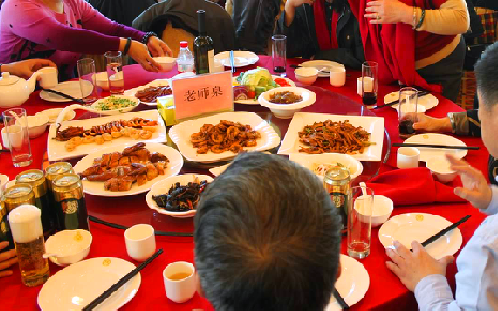1. Start early - Go to the market in the early morning as vendors are likely to have set up their stands and offer better deals for their first sales.Pro: Early shopping allows for better bargaining and an increased selection of choices.Cons: You have to start your day early. This may not work for all travel schedules.
2. Bring CashThe majority of street vendors prefer cash payments However, mobile payment methods such as WeChat Pay and Alipay are becoming more popular.Cash payments can facilitate transactions and give you more leverage during negotiations.Con: Carrying money can increase the chance of loss or theft in crowded areas.
3. Learn Basic MandarinTip: Knowing phrases like "Zhege duoshao qian?" (How much is this?) or "Pianyi Yidian Ba" (Can you lower the price?) You can communicate more effectively.Pro: Creates relationships and respect with vendors.Cons: The limited vocabulary could be a reason for confusion.
4. Inspect Goods CarefullyTip: Be sure to examine all items for any flaws or inconsistencies.Pro: You get what you pay for, and you don't have to worry about being disappointed.Con: It can be time-consuming and cause annoyance to the vendors.
5. Bargain ConfidentlyDo not be afraid to bargain, as it is common in markets on the street. You should aim to reduce the cost by 50-70% at first.Pros: Bargaining is the best way to cut expenses.Cons: It's daunting for those not familiar with the procedure.
6. Beware of counterfeitsBe wary of counterfeits when purchasing branded goods like electronic gadgets, watches, and bags.Pro: It helps save money by not buying counterfeits of poor quality.Genuine products are hard to find, and more expensive.
7. Local CustomsTip - Adapt your strategy by observing the way locals shop and negotiate.Pro: It allows you avoid cultural blunders and help you blend into the culture.Pro: Takes time to fully grasp the customs.
8. Keep Valuables SecureTIP: Use anti-theft bags or keep wallets and phones in a secure place to prevent pickpockets at busy markets.Reduces the likelihood of theft in areas that have high traffic.Cons: Extra precautions can feel restrictive or inconvenient.
9. Purchase food that you can taste (before buying)Try to get a sample of snacks or dried foods before buying.Pro: It will ensure that you are happy with the quality and taste of the food.Con: Some sellers may make you buy after giving a sample.
10. Know the Market ConcentrateTIP: Every market is specialized, for example, in antiques at Panjiayuan Market or souvenirs at Yuyuan Market. It is possible to research your needs and then align them with the market you're attending.The time you can save as well as the area of focus to what you are able to focus your attention is a great advantage.Cons: Your spontaneity is restricted if your research is rigorous.
The benefits of shopping at street marketsUnique Finds: You may find items that aren't available in formal stores such as handmade items, or local snacks.Street markets are often cheaper than shopping malls and other shops.Cultural Experience: Engaging with vendors and walking through the markets is a fantastic method to become immersed in local culture.Markets can be a great source of diverse items, from clothes and food to items for souvenirs.The cons of shopping in street MarketsCounterfeit Goods : High probability of encountering low-quality or fake items.The crowds at markets can be super busy during weekends or during holidays.Pressure from vendors: Some vendors use aggressive sales tactics that can overwhelm the customer experience.No Returns The majority of purchases are final, and there's little room to exchange or refunds.If you're prepared and follow these steps and you are prepared, you'll be able to take advantage of the most of China's lively street markets. Check out the top discover the tastes of China cities for website recommendations including a culinary journey through China, a taste of China best local foods, discover Chinese street food, China culinary hotspots, discover Chinese street food, Chinese cuisine you need to try, culinary wonders of China, experience traditional Chinese food, experience traditional Chinese food, discover China culinary delights and more.

Top 10 Tips For Ritual Practices When You Visit Famous Temples In China
1. You must respect the temple's rules and customs. Be mindful of them particularly when you are participating in rituals or entering sacred areas.Pro: Displays respect for the local tradition and respect for the sacred space of the temple.Cons: Trying to learn the rules in complex temples can be overwhelming.
2. Be Respectful and QuietTip: Be respectful by remaining quiet during rituals and in the temple. Be careful not to laugh or talk loudly.Pro: It creates an atmosphere of peace and reverence worshipers.Con: Silence may make you make you feel uncomfortable if know the local customs or the environment.
3. Dress modestlyTips: Don't expose your clothes. Instead, wear modest clothes like skirts and pants that are long. Some temples provide scarves and Shawls to cover up bare arms.Pro Respect for the sacred space and its worshippers.Con: May require additional planning or clothing when visiting on a hot day.
4. Offer the Ritual of OfferingsTips: Wait until the others have completed their rituals, and follow the example of locals if you would like to participate in an offer (such as fruits or incense).Pro: Allows you to integrate and demonstrates that you are respectful of the traditions.Con The ritual can be difficult if it is new to you it might be difficult to take part.
5. It is not a good idea to interrupt a prayer or a meditationTips: Don't disturb worshippers while they are engaged in an exercise in spirituality. While others are engaged in spiritual practices, you should refrain from engaging in conversations or taking photos.Pro: Demonstrates respect for culture and helps create an atmosphere of peace and reverence.Cons: You might be enticed to take photos of moments for your own memory However, doing this could be a bit unwelcome.
6. Lighting of IncenseTips: Lighting incense a common ritual at Chinese temples. Incense can be lit to show gratitude to the gods. Incense is held and then bow gently as you offer it.Pro: It indicates that you're actively involved in temple rituals and observing the customs.Cons: Incense might be unfamiliar to certain travelers and improper handling can be considered disrespectful.
7. Don't touch sacred statues or objectsTips: Don't touch sacred objects or temple statues unless you are specifically requested to.Pros: Preserves sanctity of temples and reverence within the space.Con: Confusing if you are not familiar with the temple boundaries.
8. Beware of Temple HierarchyA tip: There are different levels at specific temples. Avoid walking near altars, sacred statues, or other holy sites. Also know the proper time to bow.Pro: Be respectful of the temple and be respectful.Con: It may be difficult to grasp the hierarchy, and it may take additional work to figure out what is acceptable.
9. Keep Offerings HumbleTips - If you are bringing fruit, flowers, money and so on. Be modest. Also, be sure you follow local rules. Expensive gifts or extravagant ones are not always viewed with respect.Pro: Shows humility and conforms to the local culture.Cons: It is difficult to determine which kind of product is appropriate without assistance from the local area.
10. Take part In Temple Events If InvitedTip: Some temples have special days, services or rituals. If you're invited take part in the event with respect, and follow the direction of the crowd.Pros: You'll be more involved with the temple and local tradition.Cons: It can be uncomfortable to take part in unfamiliar rituals if you don't understand the proper protocol.
The benefits of watching rituals performed in TemplesCultural Immersion - Taking part in rituals can help you learn about the culture and traditions in China.Respectful interaction: Engaging with temple staff and locals in a respectful way will help to build positive relationships.Being involved in religious or spiritual practices is a rewarding and enriching experience.Being part of the temple's rituals will make you remember the experience for a lifetime.Pros and Cons of Following Temple Ritual PracticesUnfamiliarity : Rituals can be confusing to first-time visitors and lead to discomfort or errors.Cultural Missteps: If done incorrectly, it may lead to offense or misunderstandings.Language Barriers: Due to the differences in languages, it can be difficult to understand instructions and the importance of rituals.Physical discomfort: Certain rituals such as bowing and standing for long durations of time may be physically taxing.Follow these suggestions while keeping in mind local customs will guarantee that you have a meaningful and pleasant visit to China's temples. You can also engage in their spiritual practices, without inflicting any offense on anyone. Follow the best savor China regional food specialties for more examples including authentic tastes of China, taste the regional flavors of China, a guide to eating like a local in China, experience traditional Chinese food, China food heritage revealed, taste the regional flavors of China, taste the best dishes across China, the ultimate guide to Chinese cuisine, top Chinese food experiences, tasty delights from China and more.
